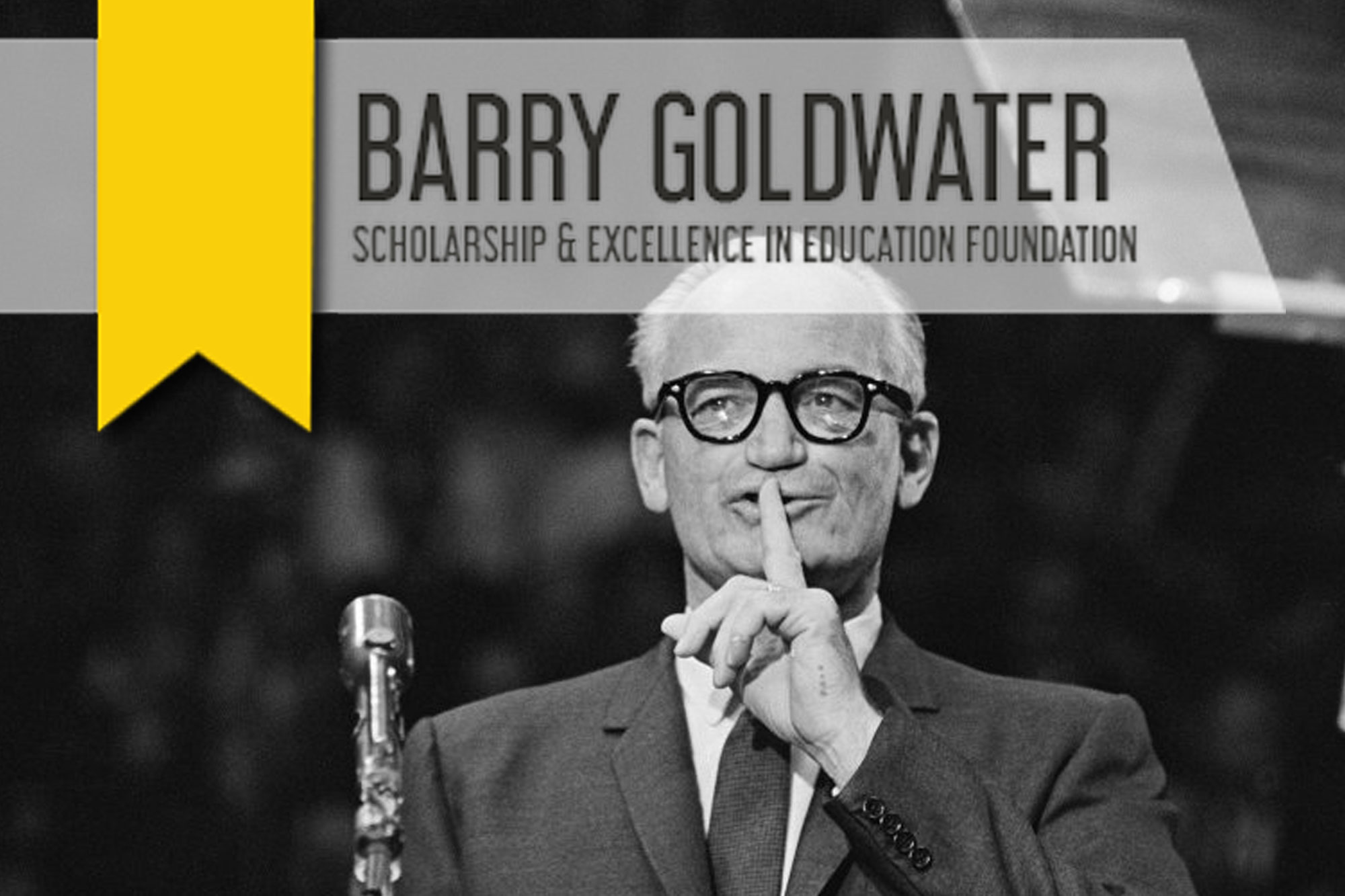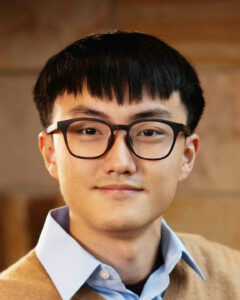
This page originally appeared on College of Science
Three College of Science students awarded a prestigious Goldwater Scholarship for 2023-24
As the result of an ongoing partnership with the Department of Defense National Defense Education Programs (NDEP), Dr. John Yopp, Chair of the Board of Trustees of the Barry Goldwater Scholarship and Excellence in Education Foundation, announced that the Trustees of the Goldwater Board has again been able to increase the number of Goldwater scholarships it is awarding for the 2023-2024 academic year to 413 college students from across the United States. “The Department of Defense’s continued partnership with the Goldwater Foundation ensures we are supporting the development of scientific talent essential to maintaining our Nation’s competitive advantage,” said Dr. Jagadeesh Pamulapati, Acting Deputy Director of Research, Technology and Laboratories, who oversees the NDEP program, as he explained the partnership. With the 2023 awards, this brings the number of scholarships awarded since 1989 by the Goldwater Foundation to 10,283.
Eliza Diggins
Physics & Astronomy
Applied Mathematics
A sophomore working on a double major in applied mathematics and physics, Eliza Diggins participated as a freshman in the Science Research Initiative (SRI) program, sponsored by the College of Science. The SRI puts students in a lab to do research as soon as they arrive on campus. After Eliza was admitted to the program, she began working with Fred Adler, professor of mathematics and of biology in the Department of Mathematics and in the School of Biological Sciences. “Math and physics have both had a special place in my heart for most of my life. Even back in elementary school, math and science always held my attention more than other subjects. I began to actively study physics in middle school and never looked back.”
Research Initiative (SRI) program, sponsored by the College of Science. The SRI puts students in a lab to do research as soon as they arrive on campus. After Eliza was admitted to the program, she began working with Fred Adler, professor of mathematics and of biology in the Department of Mathematics and in the School of Biological Sciences. “Math and physics have both had a special place in my heart for most of my life. Even back in elementary school, math and science always held my attention more than other subjects. I began to actively study physics in middle school and never looked back.”
Following graduation she hopes to pursue a Ph.D. in theoretical astrophysics to use innovative computational and analytical techniques to better understand the dynamical processes at play on all scales of the cosmos. You can read an interview of Eliza here.
Audrey Glende
Physics & Astronomy
Mathematics
At age 12, Audrey Glende found a way to help save lives–fish lives. Glende realized that fish waste produces the toxic chemical ammonia that can accumulate to dangerous amounts in new aquariums. But by introducing mulm–the unattractive dark brown layer at the bottom of fish tanks–Glende discovered that ammonia-fighting bacteria, which build up over time and are prevalent in older aquariums, could reduce the risk of fish deaths in new aquariums. Her work was eventually acknowledged by Business Insider as one of the best 30 science projects in the country.
can accumulate to dangerous amounts in new aquariums. But by introducing mulm–the unattractive dark brown layer at the bottom of fish tanks–Glende discovered that ammonia-fighting bacteria, which build up over time and are prevalent in older aquariums, could reduce the risk of fish deaths in new aquariums. Her work was eventually acknowledged by Business Insider as one of the best 30 science projects in the country.
Her ambition is to complete a Ph.D. in Physics to continue researching in condensed matter physics and eventually share my knowledge through teaching at the college level. Her faculty mentor is Professor Shanti Deemyad.
Daniel Koizumi
Mathematics
After graduation, I hope to pursue a Ph.D. in Mathematics [and] conduct research in pure mathematics and teach at university,” says Daniel Koizumi. His faculty mentors include Professor Karim Adiprasito, a German mathematician working at the University of Copenhagen and the Hebrew University of Jerusalem who works in combinatorics; Professor Sean Howe, who works in arithmetic and algebraic geometry, representation theory, and number theory; and Professor Jon Chaika, whose research in the field of dynamical systems seeks to understand a space and a map by following individual points.
Koizumi. His faculty mentors include Professor Karim Adiprasito, a German mathematician working at the University of Copenhagen and the Hebrew University of Jerusalem who works in combinatorics; Professor Sean Howe, who works in arithmetic and algebraic geometry, representation theory, and number theory; and Professor Jon Chaika, whose research in the field of dynamical systems seeks to understand a space and a map by following individual points.
Koizumi spent three months in 2022 as a research fellow at The Hebrew University of Jerusalem.
Nichols Crawford Taylor
Applied MathematicsComputer Engineering
Computer Science
“I love robotics, autonomous systems, and all the math and engineering surrounding them,” says Nichols Crawford Taylor. “I’m excited for the future they’ll create!” Taylor, a triple major, plans on pursuing a Ph.D. in robotics and then transferring to industry to teach and present his research.
“Right now,” he says, “I’m working on skill sequencing for autonomous manipulation using partial views of objects. We don’t expect robots to have all encompassing knowledge, so we’re using human-like views of objects with color and depth. From there, my research is about how to put together different skills the robot has to achieve a goal, like re-arranging books on a shelf.”
A presidential intern during the 2021-2022 academic year and, currently, the Residence Hall Association President at the U, Taylor has been on the Dean’s List and is a member of Pi Mu Epsilon. He is also a member of the Jiu Jitsu club. His faculty mentors include Dr. Daniel Drew, Dr. Alan Kuntz and Dr. Tucker Hermans, the latter of whom he considers his hero. “His breadth of knowledge and experience is astounding,” says the Orem native. “He knows so much about and surrounding the field, and has incredible insights on problems take a good bit of time to wrap my head around.”
